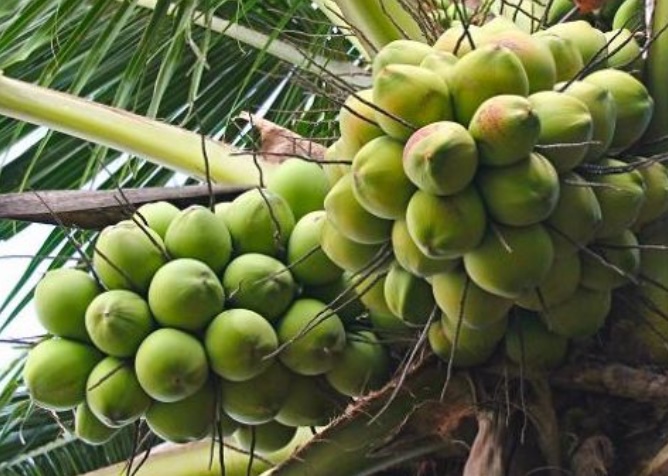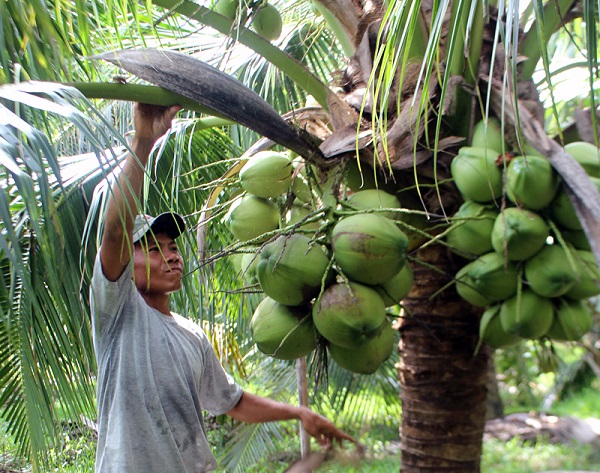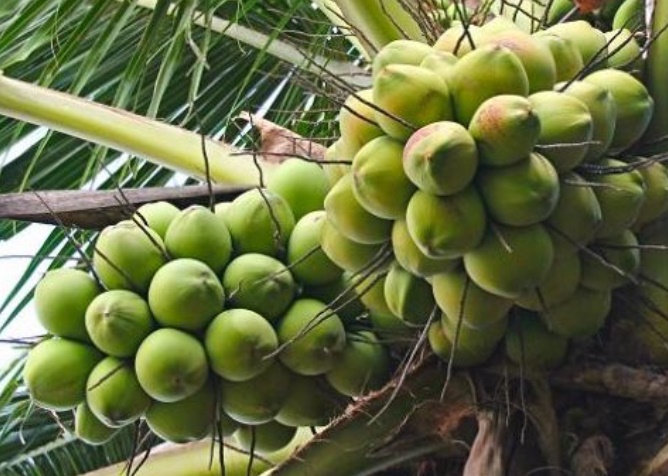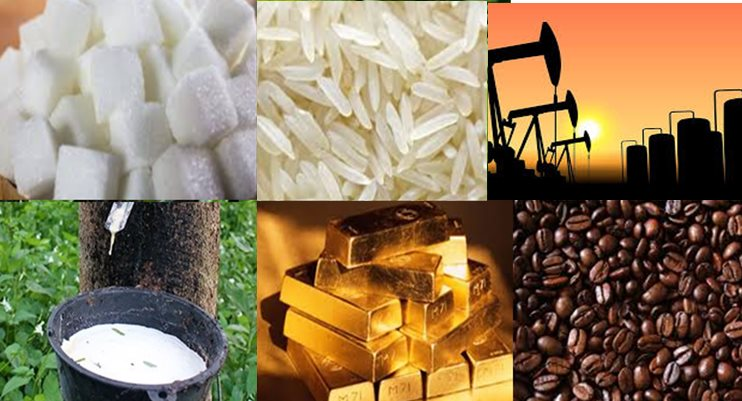Coconut, once a predominantly domestically consumed fruit with affordable pricing, has witnessed a remarkable transformation in Vietnam. Over the years, Vietnamese coconuts have gained significant traction in the export market, joining the prestigious “billion-dollar export club.”
According to the Vietnam Coconut Association, the export of fresh coconuts from Vietnam is a relatively new development, having emerged and flourished only in the last eight to nine years. However, it has experienced rapid growth, with a tenfold increase in the export turnover of fresh coconuts.
From a modest turnover of 180 million USD in 2010, the coconut industry has made remarkable strides, surpassing 900 million USD in 2023 and officially crossing the 1-billion-USD milestone in 2024.
A significant boost came in August 2024 with the signing of the official export protocol between China and Vietnam, which facilitated Vietnam’s entry into the massive Chinese market.
Statistics reveal that China consumes approximately 4 billion coconuts annually, of which 2.6 billion are fresh. Vietnam currently accounts for 20% of China’s total coconut imports and is the third-largest supplier in this market. China’s high demand coupled with its limited production capacity presents a vast opportunity for Vietnamese coconuts to further penetrate this market.

Fresh coconuts are becoming one of the key economic drivers in the Mekong Delta provinces.
Additionally, since August 2023, when the US opened its doors to Vietnamese coconuts, export volumes have skyrocketed by elevenfold in less than a year.
Data from the Vietnam Vegetables and Fruits Association shows that in the first two months of 2025, fresh coconut exports reached 33.3 million USD, an 18% increase compared to the same period last year. Notably, the US market recorded an impressive 46% growth rate. With the current growth trajectory, experts forecast that coconut exports in 2025 could surpass 1.2 billion USD.
In addition to fresh coconuts, exports of coconut-derived products to various countries are also on the rise. Specifically, in the first two months of 2025, Vietnam supplied 43.8 million USD worth of coconut-derived products to the global market, marking an 86% increase compared to the same period in 2024.
Vietnam’s “Green Gold”
With nearly 200,000 hectares of coconut plantations, the Vietnamese government, at the beginning of 2024, approved a project to develop the coconut industry as a key national industry. There are two main coconut-growing regions: the Mekong Delta (175,000 hectares) with prominent provinces such as Ben Tre, Tra Vinh, and Tien Giang; and the South-Central Coast, including Ninh Thuan. Currently, 30% of the coconut-growing area has been certified as meeting VietGAP standards, and 30% has been granted planting area codes.
Ben Tre province is widely recognized as the country’s coconut hub. According to the provincial Department of Agriculture and Rural Development, as of the end of 2022, the total coconut area in Ben Tre exceeded 78,000 hectares, with over 71,400 hectares in fruit-bearing stage, yielding an estimated 688 million coconuts annually. Approximately 20.3% of this area is dedicated to drinking coconuts, and the province aims to expand its organic coconut area to over 20,000 hectares by 2025.

Rising prices of fresh coconuts.
Currently, the purchasing price of fresh coconuts in the Mekong Delta provinces has reached 180,000-210,000 VND per dozen (12 coconuts). After adding transportation and sorting costs, retail prices can go as high as 25,000 VND per coconut for the best quality. Lower-grade coconuts are priced at 140,000-170,000 VND per dozen.
To ensure the sustainable development of Vietnam’s coconut industry and enhance its economic benefits, Mr. Cao Ba Dang Khoa, Vice Chairman and General Secretary of the Vietnam Coconut Association, suggested implementing mechanisms and policies to encourage investment in the production and processing of dried coconuts to reduce the export of raw materials, which fetches lower economic value. He also emphasized the importance of attracting foreign investment and harnessing domestic resources to establish more factories for deep processing of coconut products, building brands, and enhancing the competitiveness of Vietnamese coconut products in the international market.
Unveiling NCB Bank’s Latest Pride: The “Pride” Card Series, a Sequel to the Acclaimed “Unity” Visa
The Visa Thong Nhat card is more than just a financial product; it is a symbol and a personal statement of patriotism and national pride in this new era of global integration. With the success of the Thong Nhat card, NCB is proud to unveil its plans for a new line of cards that celebrate love for one’s homeland, aptly named the “Pride” collection.
An Open Letter from Billionaire Tran Ba Duong: THACO’s Proposal to Invest in the High-Speed North-South Railway Project Valued at US$61.35 Billion
Chairman of THACO’s Board of Directors, Tran Ba Duong, has reached out to shareholders, partners, and employees regarding the company’s proposal to invest in the North-South High-Speed Rail Project. This move showcases THACO’s sense of responsibility and determination to contribute to Vietnam’s key national infrastructure projects.
“Eximbank Takes Charge: Proactive Remediation of Administrative Violations in Gold Trading Operations”
Eximbank has responded to the State Bank’s conclusions regarding compliance with policies and laws in gold trading activities. The bank has pledged to address the issues with seriousness, openness, and transparency throughout the remediation process.





















